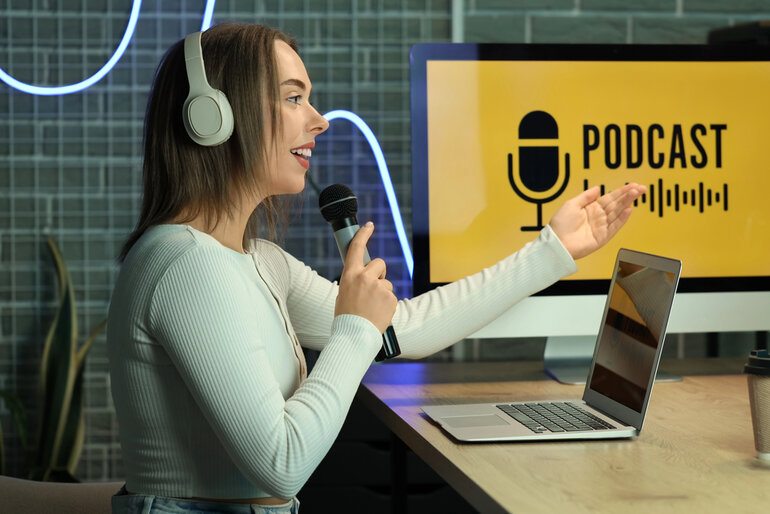Podcasts are everywhere these days. Commuting? Podcast. Cooking? Podcast. Trying to fall asleep but your brain is in ‘let’s overthink everything’ mode? There’s also a podcast for that. From true crime to comedy to two friends talking about nothing for an hour, the world of audio content is vast.
Among this universe, beer-focused podcasts have carved out a space of their own, covering everything from brewing techniques and homebrew experiments to interviews with craft beer pioneers. But have you ever wondered how these podcasters actually make money? Let’s break down the ways that these mic-wielding storytellers are turning their passion into profit.
Sponsorships and Ads
This is probably the most obvious way that podcasters make bank. Sponsors will pay good money to have their products mentioned in your ears, especially if a podcast has a solid following. These aren’t your typical radio ads either. Most podcast ads are read by the hosts themselves, making them feel more like a recommendation than a commercial. And that’s the whole point.
Some sponsors pay per 1,000 downloads (a metric known as CPM – cost per mille), while others might offer a flat rate if the podcast is big enough. For example, a niche show with loyal listeners might get $18-$50 per 1,000 listens for a 30-second ad. Do the maths: if an episode gets 50,000 downloads, that’s real money. And if a show does a couple of ads per episode? Cha-ching!
Merch
You’d be surprised by how many people are willing to buy a hoodie, mug, or tote bag with a weird catchphrase from their favourite show. If a podcast has built a strong community, merch becomes more than just a revenue stream – it’s a badge of honor for fans. This is especially true for beer and homebrewing-focused podcasts, where loyal listeners often identify deeply with the brewing culture.
And yes, even the weirdest, most niche podcasts out there have merch. There are true crime mugs that say “Stay Sexy, Don’t Get Murdered”, and even Dungeons & Dragons podcasts selling dice sets and fantasy maps. If people love your content, they’ll rep your brand.
Listener Support
For smaller or ad-free shows, listener support is the secret sauce. Platforms such as Patreon let fans throw a few bucks a month at their favorite podcasters like the Brülosophy podcast, in exchange for bonus episodes, behind-the-scenes content, early access, or just the warm fuzzy feeling of supporting independent creators.
Some podcasts make thousands (or even tens of thousands) of dollars a month this way. It’s actually kind of amazing – fans voluntarily paying to support content they could otherwise get for free. That’s some next-level loyalty.
Live Shows
Some podcasts get so popular that they hit the road. That’s right – live podcast tours. It’s essentially a mix between stand-up comedy, storytelling, and your favourite hangout podcast, but on a stage. Tickets, VIP meet-and-greets, and merch sold at these events all bring in substantial revenue. Plus, it’s a chance for the podcasters to connect with their audience IRL – and maybe finally figure out what some of their fans actually look like.
YouTube and Video Podcasts
Even though podcasts are traditionally audio-based, many creators now film themselves recording episodes and upload them to YouTube. This opens up another whole revenue stream via YouTube ads and sponsorships. If you’ve ever seen two guys sitting in front of mics in a badly lit room talking about “the top 10 worst superhero movies”, congratulations – you’ve seen the magic of video podcasting
Affiliate Marketing
You’ve probably heard it a million times: “Get 20% off your first order with promo code MYDOGTALKS.” This is affiliate marketing. The podcaster gets a cut every time a listener buys something using their special code or link. It’s a low-effort way to bring in money, especially if the host actually uses and likes the product.
Listeners can usually sniff out when it’s fake, so the trust factor matters here. This area of marketing is particularly prevalent for podcasters who produce content on competitive industries. For example, those who cover casino games and gambling can legitimately recommend slots to their listeners based on what they’ve enjoyed, and their listeners will likely follow their advice if they are seen as reliable.
Overall, not every podcaster is making major money. However, plenty of creators are making enough to cover their bills, go full-time, or at least fund their coffee addiction. Whether it’s through sponsors, listener support, merch, or live events, podcasting has gone from a hobby to a legit business model.
So, next time you’re listening to your favorite show, know that those jokes, rants, and random tangents might just be paying someone’s rent. In the case of beer and homebrewing podcasts, these casual conversations often blend entertainment with valuable brewing insights, turning passion projects into meaningful income streams while building a dedicated community of hop-loving listeners. Not bad for talking into a mic in your pyjamas, right?








